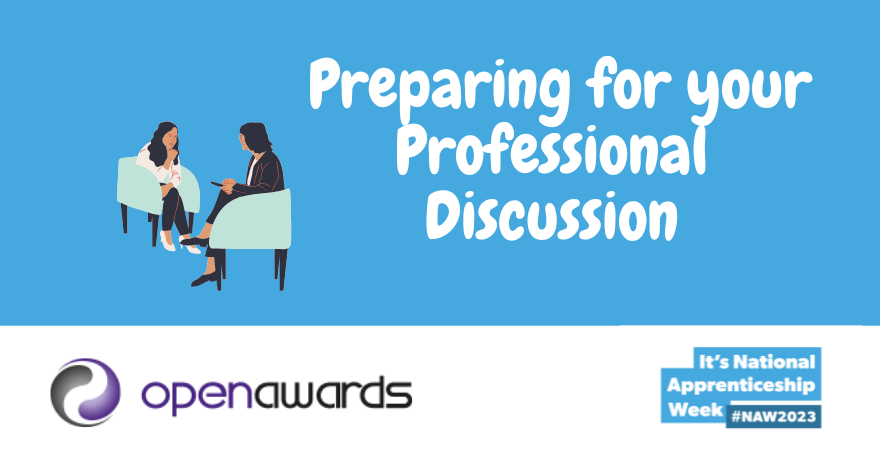
As an apprentice, you may be feeling a bit nervous about your upcoming professional discussion as part of your End-point Assessment. The good news is that with a bit of preparation and practice, you can feel confident and ready to demonstrate your abilities and knowledge to your assessor. Here are some tips to help you get ready:
-
Understand the format and expectations of the professional discussion. Remember, it is a two-way conversation between you and your assessor. Find out how long the discussion will be and what topics will be covered. This will give you an idea of what to expect and allow you to prepare accordingly.
Open Awards’ apprentices can find this information in the End-point Assessment Handbook for the Standard available via our website.
- Review your learning and development throughout the apprenticeship. Reflect on what you have learned and how you have applied it in your workplace. Think about specific examples and case studies that demonstrate your knowledge and skills.
-
Practice, practice, practice. The more you practice, the more comfortable you will be during the actual discussion. Find a partner or mentor you can discuss your apprenticeship with and who can ask you questions and give you feedback.
Example questions can be found in our support resources (available via our Secure Portal) or use the apprenticeship Standard (knowledge, skills and behaviours) to identify what questions you may be asked.
- Be prepared to talk about your future – how will you continue to implement and develop your knowledge and skills. Your assessor may ask you about how you will apply your learning to your job role and how you will continue to use skills and knowledge you have gained during your apprenticeship to advance in your career.
- Be confident and authentic. Remember that the assessor is not trying to trip you up, they want to see that you have learned and grown during your apprenticeship. Be yourself and use examples from the work you have undertaken during your apprenticeship.
Professional discussions do not need to be intimidating or scary. The key to success in a professional discussion is to be well-prepared, practice, and be confident in yourself and your abilities. Remember that your assessor just wants to see what you know and are trained to give you the best opportunity to demonstrate your competence. Take time to go through your portfolio again in advance of the assessment, and identify good examples to demonstrate what you can do.
Best of luck!
